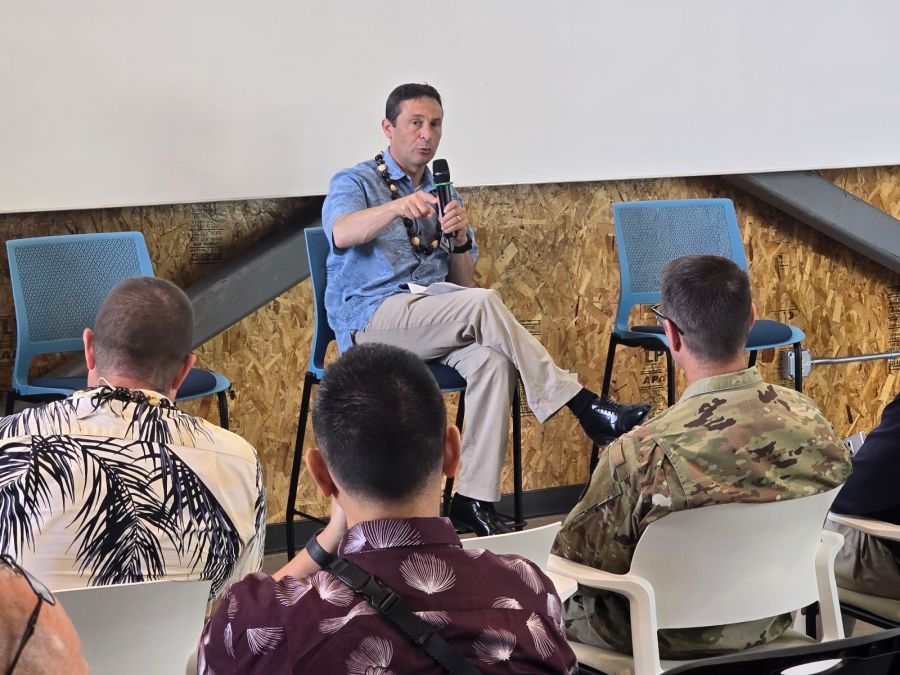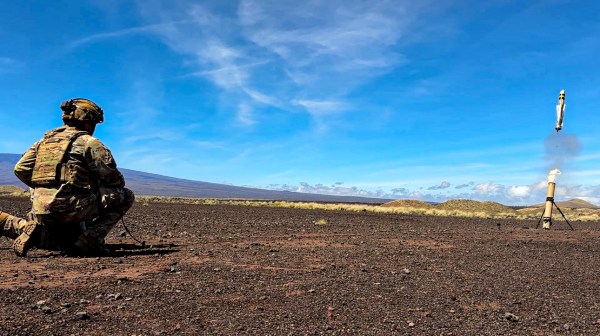DIU, Indo-Pacific Command leaders connect in Hawaii on Replicator

Defense Innovation Unit Director Doug Beck made a multi-day trip to U.S. Indo-Pacific Command’s headquarters this week to meet with its chief, Adm. Samuel Paparo, and other key civilian and military players about top-priority technology pursuits, three sources told DefenseScoop.
At the military base in Hawaii, Beck and Paparo engaged with key members of the command and DIU’s team of embeds currently based there “to discuss key initiatives, including Replicator,” a Defense Department spokesperson confirmed in an email on Friday.
“Beck and the DIU team also visited the Hawaii Defense Innovation OnRamp Hub, and met with a large group of commercial tech and DOD partners from Hawaii and elsewhere,” they told DefenseScoop.
DIU was first launched in 2015 to help Pentagon components field commercial technologies to the military more quickly and less costly than traditional government buying methods allowed.
Since then, the unit has blossomed to build foundational bridges between DOD and the tech sector, and simultaneously accelerated dual-use prototypes. Now — under Beck’s leadership — it’s been elevated and received major funding and staffing boosts to further evolve into what he calls “DIU 3.0”.
Through this new strategic approach, the innovation hub is embedding members of its team “at the most critical nodes of warfighter demand in order to identify priorities, and maximize the opportunities for commercially derived technologies to close capability gaps with the focus, speed, and scale required to deter major conflict or win if forced to fight,” the DOD spokesperson told DefenseScoop.
Beck visits Indo-Pacom “frequently in support of DIU’s ongoing work” to realize his new 3.0 strategy, they said.
“The DIU team is focused on bringing the commercial technology in artificial intelligence, autonomy, space, human systems, energy, cyber/telecom, and emerging areas like quantum to bear in support of Indo-Pacom’s most critical priorities, including the Joint Fires Network among other efforts,” the spokesperson added.
DIU is also a major contributor in the Pentagon’s plans to carry out Replicator.
Via the first stage of that high-stakes initiative, DOD seeks to rapidly field thousands of multi-domain autonomous systems by August 2025 to offset China’s massive military buildup. Due to its geographic area of responsibility, Indo-Pacom is considered the Pentagon’s main, early deployer of Replicator systems.
In response to questions from DefenseScoop, the DOD spokesperson declined to elaborate on any details of the Replicator-centered discussions Beck, Paparo and their teams held this week.
However, regarding the broader subject of autonomy they did confirm that “during the visit, the team participated in live testing of maritime domain capabilities” as part of DIU’s Large Displacement Unmanned Underwater Vehicles program supporting the U.S. Navy.
“LDUUV is a great example of speed to capability, as the effort started last July with our Navy partners, and just one year later is already conducting live testing with operational users,” the spokesperson said. “Developing undersea warfare capabilities of the kind highlighted by LDUUV is just one effort in DIU’s broader autonomy portfolio of projects, which provide novel commercial solutions to the warfighter.”
Separately this week — back around the unit’s headquarters in Mountain View, California — other DIU leaders also hosted what the official called “a synchronization of Office of the Secretary of Defense-level and Service test and evaluation components.”
The ultimate aim of that event was to “to organize and execute a development and operational testing and evaluation roadmap in the [unmanned systems space], taking advantage of the rapid pace of commercial hardware and software development in support of this critical priority,” the spokesperson told DefenseScoop.






